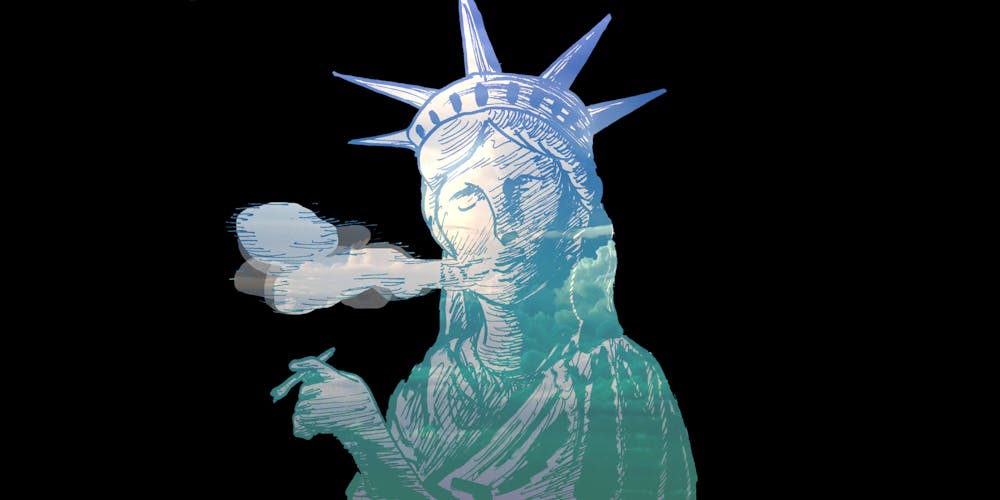Despite uncertainty surrounding Tuesday’s presidential election results, the biggest winner on election night was the fight against the war on drugs. Voters sent a strong and clear message at the polls by approving less restrictive drug laws in several states.
Both Democratic and Republican voters were able to find common ground on issues regarding drug policy. Regardless of the outcome, this election finally signifies the United States’ shift away from the tough on drug and crime policy stances of the war on drugs inflicted through past decades.
States such as South Dakota, Montana and Mississippi saw voters decide whether or not they wanted to pass legislation either decriminalizing or allowing for the medical use of marijuana. Moreover, every state that had a marijuana or drug-reform related law on its ballot saw it pass by a margin of five points or more.
Within a tightly contested and deeply partisan election such as this, it’s impressive to see the support these measures received.
Oregon became the first state in the history of the U.S. to follow in the steps of countries around the world and decriminalize all drugs. This is a huge shift because the possession of small amounts of drugs within Oregon will no longer lead to jail time. Mass incarceration through the war on drugs has an overall negative effect on public safety and has cost the U.S. government an estimated $1 trillion since 1971. Instead, Oregon will issue citations for minor drug possession offenses and offer addiction recovery centers as an alternative. Also, psilocybin, the psychedelic component in some species of mushrooms, has been legalized in the state for therapeutic use.
This less-restrictive sentiment on drugs is quite literally apparent from coast to coast as voters in Washington, D.C. also decriminalized all psychedelic plants.
As of now, 15 states allow for the recreational use of marijuana while 35 states have legalized medical use of the plant. This “green wave” has plenty of momentum behind it as voters have seen neighboring state economies flourish once the sale of marijuana becomes lawful. Nowadays, states that have yet to decriminalize marijuana can feel the walls caving in due to pressures from their residents. Drug criminalization not only terrible criminal justice and health policy but also a failure to capitalize on economic opportunity.
Since the days of former President Richard Nixon, the war on drugs has been America’s longest ongoing war. More Americans die as a result of overdoses every year than the number who died in the wars in Vietnam and Afghanistan. This war on chemicals hasn't done anything but increase the rate of drug-related deaths, dependence and addiction in this country.
It seems as if this country is making concerted strides in an effort to mitigate the many negative consequences generated by the war on drugs. It’s about time that we ended this catastrophic crusade against chemicals and focused on the implementation of substantive policies in order to mitigate addiction and drug dependence.
Kishan Dhulashia (he/him) is a sophomore studying business economics and public policy. He’s currently involved on campus with Indian Student Association as the photography and videography chair.






